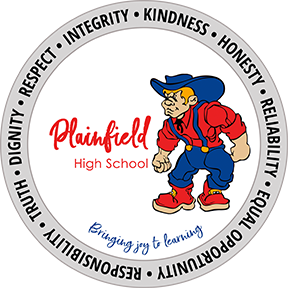Meeting someone that one admires is truly something to be remembered. To look up to someone for years is one thing, but to see them in person can totally change one’s perspective. I had the great opportunity to attend the Founder’s Day event at the Indiana Historical Society, and more importantly, meet the event’s keynote speaker: Bob Woodward.
I've been fascinated by Bob Woodward's accomplishments ever since I learned about what he and his partner, Carl Bernstein, uncovered in the Watergate scandal of the early ‘70s. I studied their journey to reveal the Watergate activities and cover-up in my freshman year Journalism class, and found my eyes opened to the wide world of mass media. Before, I hadn't really considered it as an interest, yet it was their story that encouraged me to pursue a job as a journalist myself. Additionally, their story inspired the novel I'd just begun to work on and inspired me to make one of my main characters an investigative journalist. The journalist character and his steady pursuit of a dangerous truth as well as the challenges faced as they sought the secrets beneath the presidential cover-up was directly inspired by Bob Woodward and Carl Bernstein.
After learning about all the things journalists could accomplish, I was inspired to join the journalistic scene. When pursuing stories for the Quaker Shaker newsmagazine or writing the journalist journey in my own novel, I constantly thought back to Watergate and Bob Woodward. I admired how hard he worked to uncover the truth and how clever he had to be to do it.
So, when I heard about the Founder's Day event at the Indiana Historical Society – and how Bob Woodward himself would be the keynote speaker – I knew I had to go. I could tell that if I didn't, I'd regret it forever. Considering it was Woodward who inspired me to take the path of journalism, I couldn't wait to meet him.
The moment he walked out onto that stage felt unreal. He sat down with the host of the event for an hour of interviews and information. He talked about the current events in his career and reflected on the events that had gotten him where he is now. He talked about his own journalistic experiences and what he'd learned from them. Most impactful to me was a poignant piece of journalistic advice that he gave: "Learn to let the silence suck out the truth." During a portion in which the audience could ask questions, my mother got up to ask one, and in doing so, pointed me out to him as an aspiring journalist.
Afterwards, I was lucky enough to be one of few to meet him in person. I found myself at the front of the line, and upon seeing me, he addressed me as "the young journalist.” He was kind and considerate, despite the urgent line behind me and the short amount of time we had. We shook hands, I told how much his work had inspired me and asked him for some quick advice. He told me to work hard, make sure to interact with people in order to pick up information and to always let the interviewee end the interview.
On the drive home that night, all I could think about was how much that small interaction had meant. I'd gotten to meet someone I'd only read about, a journalistic legend who'd accomplished one of the greatest journalistic feats of his generation. More than that, he'd given me advice that I'd carry with me throughout my career.
Story by Annika Christiansen

